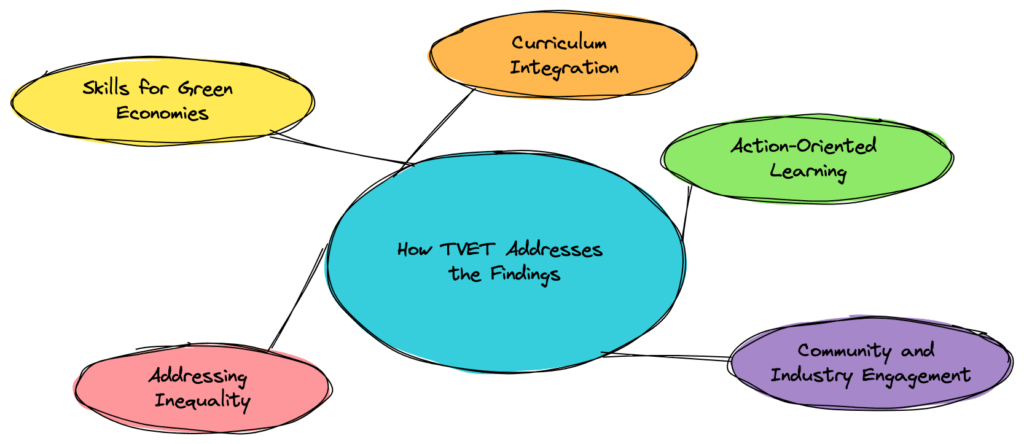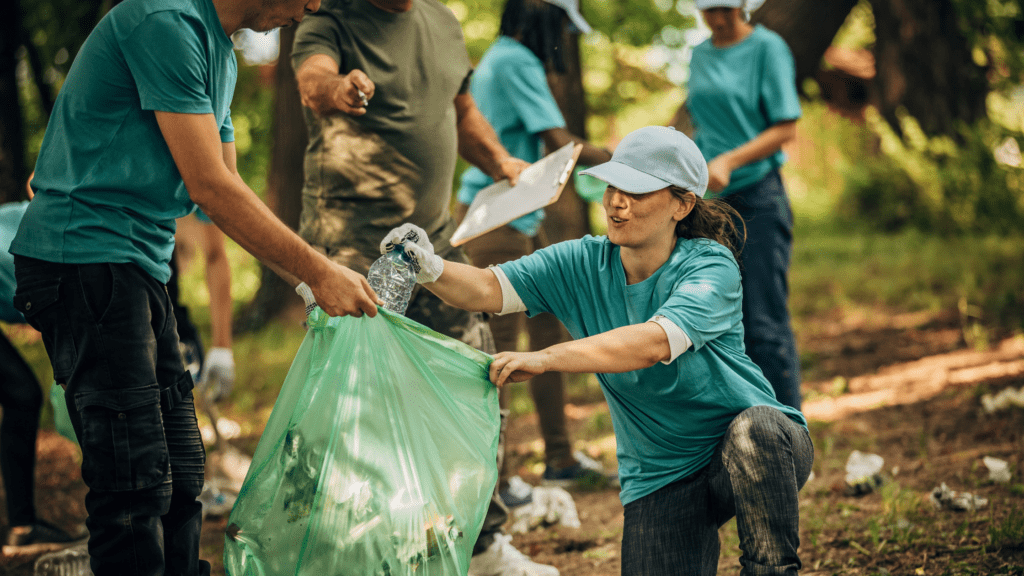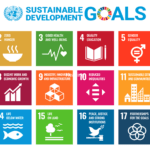The 2024 Global Education Monitoring Report, “Education and Climate Change: Learning to Act for People and Planet,” underscores the critical intersection between education and climate change. As climate change continues to impact societies globally, education systems must evolve to address these challenges effectively. This article examines the report’s findings and how Technical and Vocational Education and Training (TVET) can be key in addressing these issues.
Key Findings of the Report
The report highlights several important points regarding the relationship between education and climate change:
Impact of Climate Change on Education: Climate change disrupts education systems by destroying infrastructure, displacement of communities, and adverse health impacts on students and staff. These disruptions are more severe in marginalised populations, exacerbating educational inequalities.
Role of Education in Climate Action: Education can significantly contribute to climate change mitigation and adaptation. It develops professional capacities necessary for transitioning to a green economy and motivates actions on climate change through formal, non-formal, and informal learning.
Need for Transformative Education: The traditional cognitive, knowledge-transfer education model is insufficient. The report calls for an education paradigm shift towards social, emotional, and action-oriented learning to drive climate action effectively.
Integration of Climate Change in Curricula: How countries integrate climate change into national curricula is substantially different. More vulnerable countries tend to include more climate change content in their education systems than those with high per capita emissions.

How TVET Addresses the Findings
Technical and Vocational Education and Training (TVET) is uniquely positioned to address the challenges and recommendations highlighted in the report:
Skills for Green Economies: TVET can develop the practical skills needed for green jobs, such as renewable energy technologies, sustainable agriculture, and environmental management. By equipping learners with these skills, TVET builds a workforce that supports the transition to sustainable practices.
Action-Oriented Learning: TVET’s hands-on, experiential learning approach aligns well with the report’s call for action-oriented education. TVET programmes can include practical projects that address real-world environmental challenges, inspiring students’ sense of responsibility and capability to enact change.
Curriculum Integration: TVET curricula can be designed to integrate climate change education across various technical disciplines. This ensures that all students, regardless of their field of study, understand how climate change impacts their lives and their work.
Community and Industry Engagement: TVET institutions often have strong ties with local industries and communities. These connections can be used to implement community-based projects and industry partnerships that promote sustainable practices and climate resilience.
Addressing Inequality: TVET can help reduce the educational inequalities exacerbated by climate change by providing education and training opportunities to marginalised and vulnerable populations. This inclusive approach ensures that all segments of society are equipped to contribute to and benefit from a green economy.

Recommendations for Enhancing TVET’s Role
To maximise the impact of TVET in addressing climate change, the following recommendations are proposed:
Policy Support and Funding: Governments should allocate adequate resources to support integrating climate change education into TVET curricula and infrastructure. This includes funding for teacher training, curriculum development, and the creation of climate-resilient educational facilities.
Collaborative Frameworks: Establish partnerships between TVET institutions, industries, and communities to create collaborative frameworks for addressing local environmental issues through education and training.
Research and Innovation: Invest in research to develop innovative teaching methods and technologies that enhance climate change education within TVET. This includes exploring new pedagogies that combine cognitive, social-emotional, and behavioural learning.
Monitoring and Evaluation: Implement robust monitoring and evaluation systems to assess the effectiveness of climate change education initiatives within TVET. This data can inform continuous improvement and ensure that programmes meet their objectives.
Exploring New Pedagogies that Combine Cognitive, Social-Emotional, and Behavioural Learning
To effectively address the complexities of climate change through education, it is essential to explore and implement pedagogies that integrate cognitive, social-emotional, and behavioural learning. Each of these dimensions uniquely shapes a comprehensive educational experience that imparts knowledge and inspires the skills and attitudes necessary for climate action.
Cognitive Learning
Cognitive learning focuses on the acquisition of knowledge and intellectual skills. In the context of climate change education, this involves understanding the science behind climate change, its causes, effects, and potential solutions. Cognitive learning strategies include:
- Lectures and Textbooks: Providing foundational knowledge about climate science, environmental policies, and sustainable practices.
- Problem-Based Learning (PBL): Encouraging students to solve real-world problems related to climate change enhances critical thinking and knowledge application.
- Digital Simulations and Models: Using technology to simulate climate scenarios and model the impacts of various interventions, helping students grasp complex concepts.
Social-Emotional Learning (SEL)
Social-emotional learning involves developing skills to manage emotions, build healthy relationships, and make responsible decisions. Integrating SEL into climate change education helps students cope with the emotional aspects of climate change, such as anxiety and grief, and inspires a supportive community. SEL strategies include:
- Collaborative Projects: Group activities that require students to work together, promoting teamwork, communication, and empathy.
- Reflective Practices: Encouraging students to reflect on their feelings about climate change and discuss them in a safe, supportive environment.
- Role-Playing and Simulations: Activities where students can assume the roles of different stakeholders in climate-related scenarios, helping them understand diverse perspectives and develop empathy.
Behavioural Learning
Behavioural learning focuses on changing actions and habits to align with sustainable practices. This involves knowing what to do and having the motivation and skills to take action. Strategies for promoting behavioural learning include:
- Experiential Learning: Hands-on activities such as planting trees, recycling projects, or energy audits that allow students to practice sustainable behaviours.
- Incentive Programmes: Reward systems that encourage students to engage in environmentally friendly actions, such as reducing waste or conserving energy.
- Community Service and Outreach: Involving students in community projects that address environmental issues, inspiring a sense of responsibility and connection to their local environment.
Integrating These Pedagogies in TVET
- Project-Based Learning (PBL): Incorporate PBL into TVET curricula where students tackle real-world environmental challenges. For example, engineering students might design renewable energy solutions, while agriculture students develop sustainable farming practices. These projects combine a cognitive understanding of technical principles with the social-emotional skills of teamwork and the behavioural aspect of implementing sustainable practices.
- Collaborative Learning Environments: Create learning environments that promote student collaboration and interaction. This could include group discussions on climate policies, joint projects with local communities, and partnerships with industries focused on green technologies. Such environments enhance social-emotional learning by building communication skills and empathy while encouraging behavioural changes through shared goals and responsibilities.
- Mentorship and Peer Support: Establish mentorship programmes where experienced professionals guide students in their climate action projects. Peer support groups can also provide emotional and motivational backing, helping students navigate the challenges of implementing sustainable practices. These networks inspire social-emotional growth and reinforce positive behavioural changes.
- Integrated Curriculum Design: Design curricula integrating cognitive, social-emotional, and behavioural learning objectives. For instance, a course on renewable energy could include theoretical lessons (cognitive), group projects to design and present sustainable solutions (social-emotional), and practical workshops where students build and test their models (behavioural).
- Reflective and Mindfulness Practices: Incorporate reflective practices such as journaling and mindfulness sessions into the curriculum. These practices help students process their emotions related to climate change, reduce anxiety, and build resilience. Reflective practices also encourage a deeper connection to the material, enhancing social-emotional and cognitive learning.
- Assessment of Learning Outcomes: Develop assessment methods that evaluate students’ knowledge, emotional engagement, and behavioural changes. These could include portfolios, project presentations, peer reviews, and self-assessments that measure cognitive understanding, social skills, and sustainable actions.
Conclusion
TVET has an integral role in addressing the complex challenges of climate change. By aligning its educational strategies with the 2024 Global Education Monitoring Report recommendations, TVET can contribute significantly to building a sustainable future. Integrating climate change education, developing green skills, and promoting action-oriented learning within TVET are essential steps towards achieving this goal.



